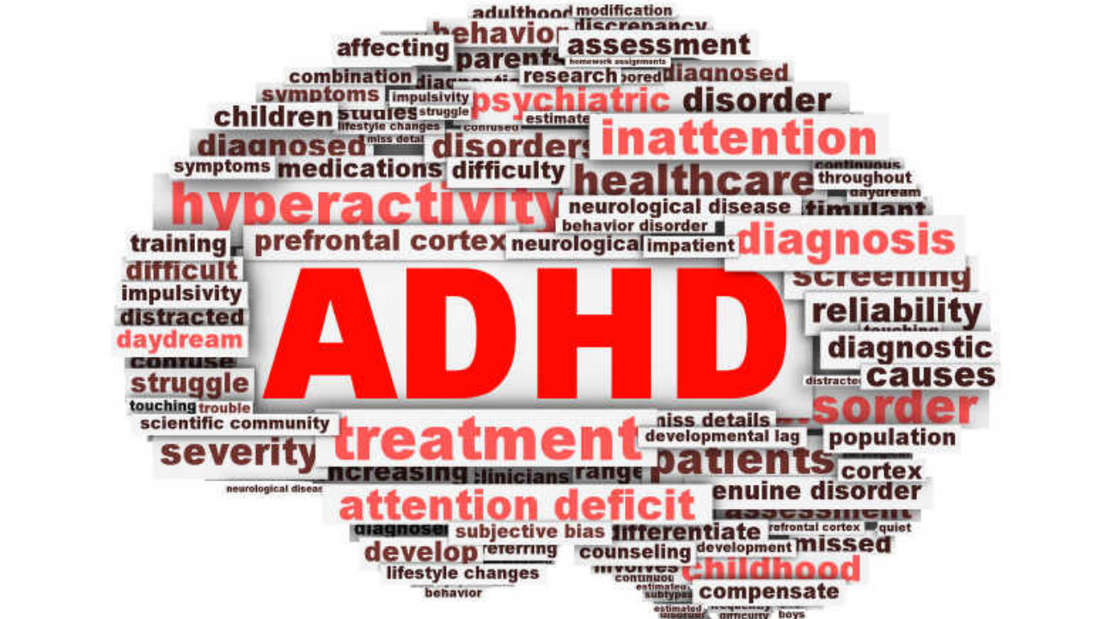Attention deficit hyperactivity disorder (ADHD) is a neurodevelopmental illness that affects both children and adults. Symptoms of this disorder include inattention, impulsivity, and hyperactivity. These symptoms can interfere with daily activities and interpersonal connections, as well as cause academic and occupational challenges.
Individuals with ADHD may have trouble focusing, be easily distracted, and struggle with organization and task completion. In addition, they may exhibit impulsive behaviors such as interrupting others, acting without thinking, and having difficulties waiting their turn. Symptoms of hyperactivity include fidgeting, wriggling, and difficulty sitting still.
While there is no cure for ADHD, its symptoms can be effectively managed with medication, behavioral treatment, and lifestyle adjustments. However, other individuals may opt to employ natural medicines, such as Bacopa, to assist control their symptoms.
Bacopa, a herb extensively employed in traditional Ayurvedic medicine, is occasionally recommended as a natural treatment for ADHD. However, there is limited scientific evidence to support its efficacy in treating ADHD, and it should not be substituted for treatments supported by scientific data, such as medication and behavioral therapy.
History
Bacopa usage as a brain tonic to boost memory and cognitive function dates back to ancient Ayurvedic medicine in India. In Ayurveda, it is also known by the name Brahmi. The herb was also used to treat anxiety, epilepsy, and asthma, amongst other diseases.
Bacopa was frequently combined with other herbs in traditional Ayurvedic treatment to achieve a synergistic effect. In Ayurveda, it is also known as "Medhya Rasayana," which translates to "Herbs for Improving Mental Health."
Recent scientific research has begun to elucidate the possible health benefits of Bacopa. According to studies, it may possess antioxidant and anti-inflammatory effects, as well as the capacity to reduce stress and enhance cognitive function.
Bacopa has a long history of use in India, Nepal, and other South Asian nations, and it is still frequently employed in Ayurvedic treatment. It is also being researched for its possible medical advantages and is gaining popularity as a dietary supplement in various regions of the world.
How it works
The precise processes via which Bacopa may alleviate ADHD symptoms are poorly understood. Bacopa may improve cognitive function, memory, and attention by boosting the levels of neurotransmitters such as serotonin and dopamine in the brain, according to some research. It may also possess antioxidant properties, reducing oxidative stress and protecting brain cells from harm.
To completely comprehend the effects of Bacopa on ADHD and the underlying processes by which it may function, additional research is required. It is also crucial to highlight that studies on Bacopa and ADHD have yielded contradictory results, and additional rigorous, well-designed trials are required to demonstrate its usefulness and safety for this purpose.
In conclusion, although Bacopa may have potential benefits for those with ADHD, additional research is required to determine its safety and efficacy for this purpose. Individuals with ADHD should collaborate with their healthcare physician to determine the optimal treatment for their
Studies and Results
Few research have been undertaken on the use of Bacopa for the treatment of ADHD symptoms, and the results have been contradictory. The number of participants in these investigations has been minimal, with some studies having as few as three participants and others having as many as sixty.
In comparison to a placebo, Bacopa supplementation enhanced attention and cognitive function in children with ADHD, according to one study. In a separate investigation, Bacopa extract was proven to enhance memory and information processing speed in healthy individuals. However, not all research have discovered significant Bacopa advantages for ADHD symptoms.
Bacopa has demonstrated some effectiveness in enhancing cognitive function and attention in patients with ADHD. To fully comprehend the effects of Bacopa on ADHD, however, more research is required.
As dose might vary based on the individual and the illness being treated, it is advisable to visit a healthcare practitioner for tailored dosing recommendations. In general, doses of Bacopa utilized in ADHD research vary from 300 mg to 450 mg per day, administered in divided doses. Before using Bacopa to treat ADHD or any other illness, it is essential to exercise caution and see a healthcare expert, as it can cause adverse effects such as digestive discomfort and may interact with certain drugs.
Recommended Dosage
The recommended dosage of Bacopa differs depending on the method of administration. The typical daily dosage for capsule or tablet form is 300-450 mg, administered in divided doses. The suggested dosage for a liquid extract is normally 30 to 40 drops twice daily. Before taking any supplement, it is always preferable to follow the manufacturer's advised dosage or visit a healthcare practitioner.
Conclusion
Bacopa has a long history of usage in Ayurvedic medicine to enhance memory and cognitive function. According to recent scientific studies, it may also have antioxidant, anti-inflammatory, and adaptogenic qualities. It has long been used to treat anxiety, epilepsy, and asthma, among other diseases. It is being used extensively in Ayurvedic treatment and is gaining popularity as a dietary supplement worldwide. However, additional research is necessary to comprehend the full potential of Bacopa and its efficacy in treating various health issues.
References
- Roodenrys S, Booth D, Bulzomi S, Phipps A, Micallef C, Smoker J. Chronic effects of Brahmi (Bacopa monnieri) on human memory. Neuropsychopharmacology. 2002;27(2):279-281. doi:10.1016/S0893-133X(01)00419-9
- Peth-Nui T, Wattanathorn J, Muchimapura S, et al. Effects of 12-week Bacopa monnieri consumption on attention, cognitive processing, working memory, and functions of both cholinergic and monoaminergic systems in healthy elderly volunteers. Evidence-Based Complementary and Alternative Medicine. 2012;2012:606424. doi:10.1155/2012/606424
- Stough C, Lloyd J, Clarke J, et al. The chronic effects of an extract of Bacopa monniera (Brahmi) on cognitive function in healthy human subjects. Psychopharmacology (Berl). 2001;156(4):481-484. doi:10.1007/s002130100815




